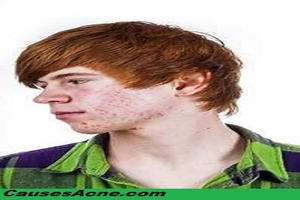
Teen Acne Causes and Treatments
As if teenagers do not have enough to deal with between more challenging schoolwork, social awkwardness, discovering who they are and what they like, and puberty, acne enters the picture to make things even more complicated. Teen acne causes angst for both teenage girls and boys. At some point, every teenager experiences an acne outbreak. However, some teenagers experience it with a lot more severity which also results in low self-esteem and a poor self-image making those teenage years even more difficult to deal with.
What is Teen Acne?
When teenagers go through puberty, their bodies are going through many changes physically, emotionally and internally. The biggest changes are a result of hormone levels fluctuating. Androgen, the male sex hormone, increases in boys and girls during puberty. One of the outcomes of too much androgen is that the sebaceous glands which normally produce oil called sebum in the skin through the hair follicles, begin to overproduce oil. When too much is produced, however, the skin’s pores become clogged with the sebum as well as with the skin’s cells. Bacteria that is normally present on the skin now grows in the hair follicle openings. The end result is a mixture of oil, dead skin cells and bacteria that clog up the pores and cause acne.
There are a few types of acne that are most common:
- Comedones: These are non-inflammatory papules usually referred to as blackheads if they are open or whiteheads if they are closed.
- Papules: These inflamed lesions are usually small, pink bumps on the skin that can also be tender when you touch them.
- Pustules: These are inflamed, pus-filled lesions that may have a red base.
- Nodules: These large, painful solid lesions are usually located deep under the skin.
- Cysts: These lesions are filled with pus and are also located deep under the skin. Cysts can cause scarring and pain.
Pimples usually appear on the face, but can also occur on the back, chest, neck and shoulders. While teen acne is not a serious health concern, it can be emotionally troubling for a teenager already dealing with so much. Severe cases of teen acne can lead to permanent scarring.
Factors Affecting Teen Acne
So why do some teenagers get acne while others escape its clutches altogether? Genetics often play a role in acne. If one or both parents had acne, there is an increased chance of their teenager having it as well. Certain medications can also cause acne as well as greasy cosmetics that stick to follicles causing their pores to get clogged.
There are also factors that can make acne worse like stress, picking or squeezing pimples, irritating the skin by leaning on it, rubbing it or scrubbing it too hard, and wearing helmets, backpacks or tight clothing. What does not seem to have an effect on the development of acne despite common beliefs are greasy foods, chocolate or dirty skin.
Treatment Options
The good news for most teenagers is that the acne is not a permanent part of life. It usually starts to diminish when puberty is over and it is no longer an issue. However, while acne is a problem, there are many options for treating it and managing it.
Many over-the-counter acne treatments contain benzoyl peroxide or salicylic acid that have been proven to work on fighting acne and preventing or minimizing future outbreaks. They do take a few weeks to take effect, but they do work and can greatly minimize the appearance of acne.
In more severe cases, prescriptions for topical creams, gels or ointments can be used. The ingredients in these treatments are a bit stronger to combat cases where acne has not responded to traditional drug store treatments. If these do not work, there are also prescription oral medications like an antibiotic that can be used to reduce inflammation. These drugs are usually taken in combination with using topical agents. They are also taken for a longer period of time—usually a few months until the acne is all but cleared up.
In the meantime while� acne is part of life, there are a few things a teenager can do to keep it under control. Washing their face twice a day with a gentle cleanser helps to keep the skin clean. Avoid using harsh scrubs that can irritate the skin and the acne as well. Use only oil-free cosmetics that will not clog pores. Finally, never pick, squeeze or scratch a pimple. When this is done, more bacteria get deeper into the skin making the acne worse. It also can lead to permanent scarring which becomes a lot more complicated to get rid of.
Teen acne is a part of life, but luckily, it is only around for a short period of time. Acne should never dictate how a teenager feels about him or herself. By taking preventative measures and treating the acne on a regular basis, there is no reason in the world why teenagers cannot fully enjoy these wonderful years of their lives.
